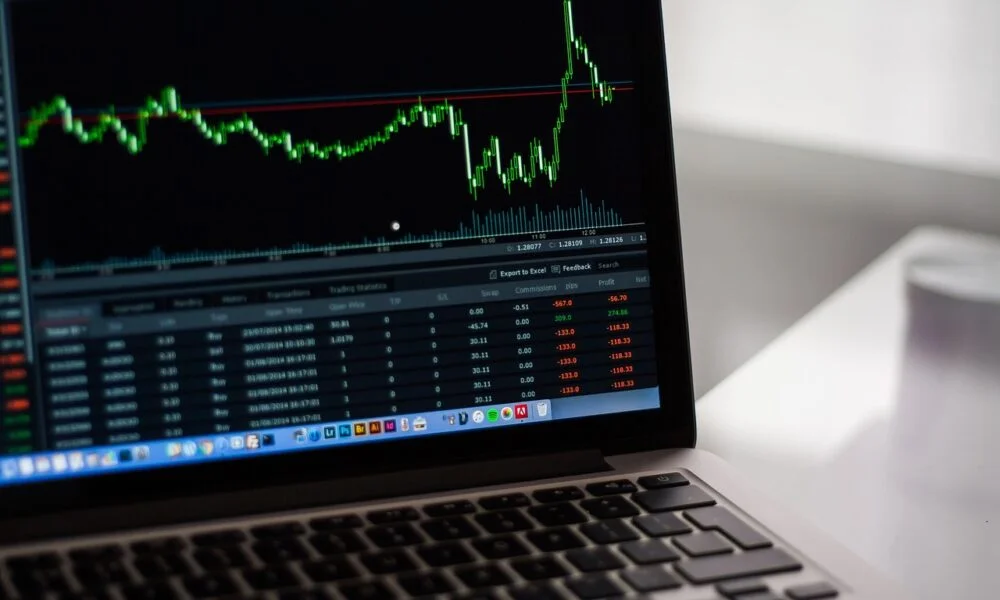The DAX 40, also known as the Deutscher Aktienindex, is Germany’s premier stock market index. It tracks the performance of 40 of the largest and most influential companies listed on the Frankfurt Stock Exchange. As one of Europe’s most important indices, the DAX 40 is often seen as a barometer of the overall economic health of Germany and, by extension, the European Union. This article delves into the current state of the Fintechzoom.com DAX40 Today, with a particular focus on insights provided by Fintechzoom.com, a platform known for its comprehensive coverage of financial markets.
Overview of the DAX 40
The DAX 40 was originally the DAX 30, representing the 30 largest companies by market capitalization in Germany. However, in September 2021, it was expanded to include 10 more companies, reflecting the growing diversification and importance of Germany’s corporate landscape. The companies listed on the DAX 40 represent a wide array of industries, including automotive, technology, pharmaceuticals, and consumer goods.
Key Players in the DAX 40
Some of the most recognized companies within the DAX 40 include:
- Volkswagen: One of the world’s largest automakers, known for brands like Audi, Porsche, and Volkswagen itself.
- Siemens: A multinational conglomerate focused on industrial automation, healthcare, and energy solutions.
- Bayer: A pharmaceutical and life sciences company best known for its products in health care and agriculture.
- SAP: A leading global enterprise software provider specializing in business operations and customer relations.
- Allianz: One of the world’s largest insurance companies, offering products across life, health, and property insurance sectors.
These companies are major contributors not only to the German economy but also to the global market.
The Current State of the DAX 40
The DAX 40 is constantly influenced by a variety of factors, including global economic conditions, political events, monetary policy, and industry-specific trends. As of today, the index is experiencing fluctuations due to a combination of these factors. According to Fintechzoom.com, here are some of the most significant aspects impacting the DAX 40 today:
1. Global Economic Concerns
Global economic uncertainty, particularly in light of inflationary pressures, rising interest rates, and supply chain disruptions, is having a pronounced effect on the DAX 40. Companies listed in the index, particularly in the automotive and industrial sectors, are facing significant challenges in maintaining profitability. The increasing cost of raw materials and the ongoing energy crisis in Europe—exacerbated by the war in Ukraine—are putting downward pressure on earnings.
2. Energy Crisis and Its Impact on German Industry
Germany, as one of Europe’s largest industrial powerhouses, is deeply affected by rising energy costs. The energy crisis, mainly driven by the sharp reduction in Russian gas supplies, is increasing operational costs for energy-intensive industries, which dominate the DAX 40. Companies like BASF, a global leader in chemicals, have been particularly vulnerable to this issue, as they rely heavily on affordable energy to maintain their operations.
3. Interest Rates and Central Bank Policies
The European Central Bank (ECB) has been taking measures to combat rising inflation by increasing interest rates. While higher interest rates are designed to control inflation, they also tend to slow economic growth by increasing borrowing costs for businesses and consumers. This policy change is having a mixed impact on the DAX 40. For instance, financial services companies like Deutsche Bank and Allianz may benefit from higher interest rates due to improved margins, but other sectors, particularly real estate and consumer goods, could suffer due to decreased consumer spending and investment.
4. Automotive Sector Volatility
Germany’s automotive industry, represented in the DAX 40 by companies like Volkswagen, Daimler (Mercedes-Benz), and BMW, continues to face significant challenges. The ongoing semiconductor shortage, supply chain bottlenecks, and shifts towards electric vehicles (EVs) are creating both opportunities and risks for these companies. While the transition to EVs is essential for long-term sustainability and growth, the short-term challenges of sourcing materials and managing production are putting pressure on these automakers’ stock prices.
5. Technological Innovation and Digital Transformation
On the positive side, German companies in the technology and software sectors, particularly SAP, are benefiting from increased demand for digital transformation solutions. As businesses across the globe adopt cloud computing, data analytics, and automation, SAP is well-positioned to capitalize on these trends, which is reflected in its stock performance. According to Fintechzoom.com, SAP’s robust earnings reports have helped lift the overall DAX 40 index despite broader economic concerns.
Why Track the DAX 40 Today?
Investors and analysts alike keep a close eye on the DAX 40 because it serves as a critical indicator of European market health. Germany is Europe’s largest economy, and the companies within the DAX 40 have a significant influence on the economic fortunes of the continent. Here are a few reasons why tracking the DAX 40 today is crucial for investors:
1. Global Influence
Germany’s largest corporations are global players. Companies like Volkswagen, Siemens, and Bayer operate across multiple continents, and their performance can provide insights into broader global trends. For example, Volkswagen’s sales figures can offer clues about consumer demand in both emerging and developed markets, while Siemens’ performance can reflect the state of industrial automation worldwide.
2. Economic Forecasting
Because the DAX 40 represents a wide array of industries, its movements can serve as a proxy for understanding the broader economic environment. A rising DAX 40 might indicate positive economic conditions in Europe, while a declining index could be a sign of trouble ahead. For investors looking to gain insight into the European market, the DAX 40 is an essential benchmark.
3. Sector-Specific Insights
Tracking the DAX 40 allows investors to gain insights into specific sectors, such as automotive, pharmaceuticals, and technology. For example, the performance of German automakers may reflect global consumer trends, while the performance of pharmaceutical giants like Bayer can provide information about the state of the healthcare industry.
4. Currency Movements
The strength or weakness of the euro relative to other currencies can also influence the DAX 40. Many of the companies in the DAX 40 export their products globally, so currency fluctuations can have a significant impact on earnings. A weaker euro, for example, might make German products more competitive in international markets, boosting the stock prices of DAX 40 companies.
Insights from Fintechzoom.com
Fintechzoom.com is an excellent resource for tracking the DAX 40 and gaining a deeper understanding of its day-to-day movements. The platform provides real-time data, analysis, and news about the companies listed on the index, allowing investors to stay informed about the latest developments. Whether you are a seasoned investor or just starting to explore the world of finance, Fintechzoom.com offers valuable insights into how global economic trends, industry-specific factors, and corporate earnings reports are influencing the DAX 40 today.
In-Depth Analysis and News
Fintechzoom.com provides up-to-date news on key players in the DAX 40, as well as broader market trends that affect the index. This includes expert commentary on earnings reports, stock price movements, and geopolitical events that may impact German markets. For investors looking to make informed decisions, Fintechzoom.com is a vital tool.
Customizable Tools and Charts
The website also offers customizable charts, allowing users to track the DAX 40 over different time frames and compare it with other major indices. This can be particularly useful for investors looking to analyze trends and make long-term investment decisions.
Conclusion
The DAX 40 is a crucial index for understanding not only the German economy but also broader European and global market trends. With the economic challenges posed by inflation, energy crises, and supply chain disruptions, tracking the DAX 40 today is more important than ever. Fintechzoom.com serves as a valuable resource for investors looking to stay informed and make sound financial decisions. By keeping an eye on the DAX 40 and the insights provided by Fintechzoom.com, investors can navigate the complexities of today’s market with greater confidence.



